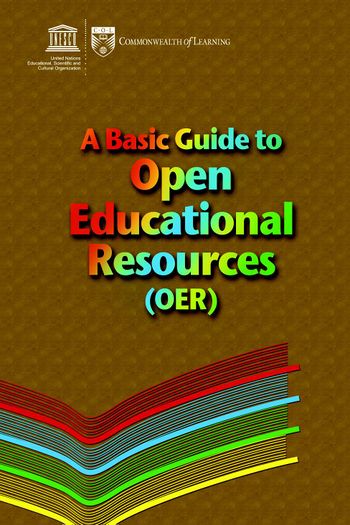A Basic Guide for OER/Home
The Commonwealth of Learning (COL) is an intergovernmental organisation created by Commonwealth Heads of Government to encourage the development and sharing of open learning and distance education knowledge, resources and technologies.
The United Nations Educational, Scientific and Cultural Organization (UNESCO) was founded on 16 November 1945. UNESCO is a specialized United Nations agency promoting international cooperation among its Member States and Associate Members in the fields of education, science, culture and communication.
The designations employed and the presentation of material throughout this publication do not imply the expression of any opinion whatsoever on the part of UNESCO concerning the legal status of any country, territory, city or area or of its authorities, or concerning the delimitation of its frontiers or boundaries.
The authors are responsible for the choice and the presentation of the facts contained in this book and for the opinions expressed therein, which are not necessarily those of UNESCO and do not commit the Organization.
Any part of this document may be reproduced without permission but with attribution to the Commonwealth of Learning.
CC-BY-SA (share alike with attribution) Creative Commons BY-SA/3.0 Share alike Copy Licences
A Basic Guide to Open Educational Resources (OER)
Prepared by Neil Butcher
Edited by Asha Kanwar (COL) and Stamenka Uvalic-Trumbic (UNESCO)
ISBN 978-1-894975-41-4
Published by:
| Commonwealth of Learning
1055 West Hastings, Suite 1200 |
UNESCO Section for Higher Education
7 place de Fontenoy |
Back cover of physical booklet
This Guide comprises three sections. The first - a summary of the key issues - is presented in the form of a set of 'Frequently Asked Questions'. Its purpose is to provide readers with a quick and user-friendly introduction to Open Educational Resoureces (OER) and some of the key issues to think about when exploring how to use OER most effectively.
The second section is a more comprehensive analysis of these issues, presented in the form of a traditional reserach paper. for those who have a deeper interest in OER, this section will assist with making the case for OER more substantively.
The third section is a set of appendices, containing more detailed informaton about specific areas of relevance to OER. These are aimed at people who are looking for substantive information regarding a specific area of interst.



